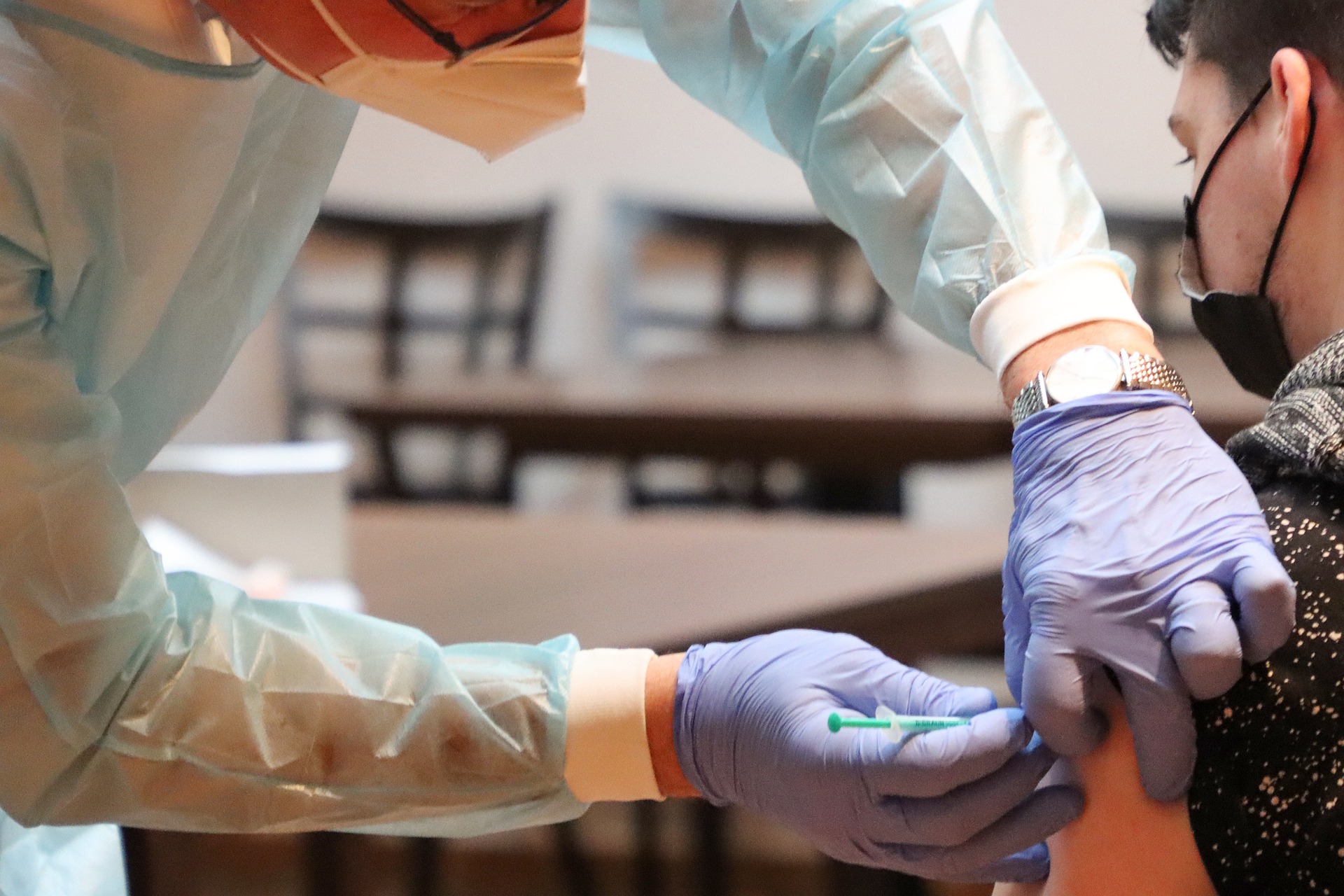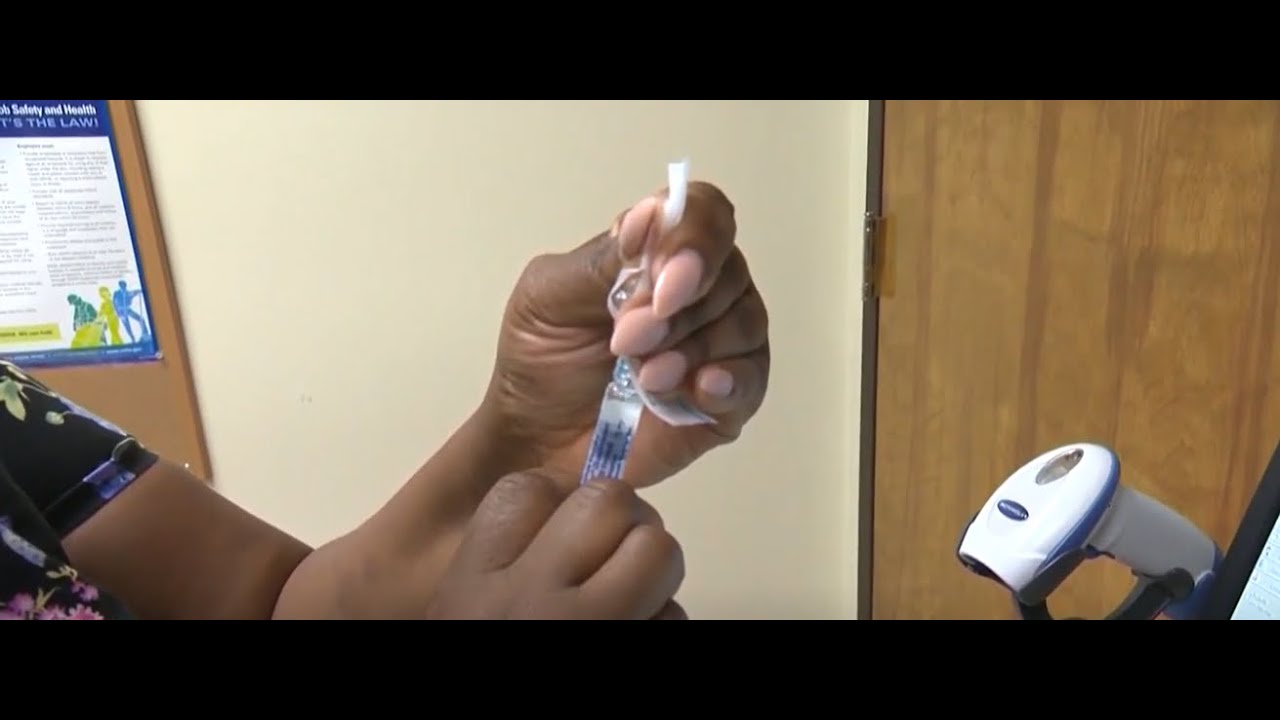CDC Reports Flu Vaccine Appears To Be A Close Match To The Strains Currently Circulating
Dr. Rochelle Walensky, director of the United States Centers for Disease Control and Prevention (CDC), said during a press conference on Monday that the flu vaccine appears to be a close match to the strains currently circulating.
Author:Daniel JamesReviewer:Karan EmeryDec 07, 202220.7K Shares450.3K Views

Dr. Rochelle Walensky, director of the United States Centers for Disease Control and Prevention (CDC), said during a press conference on Monday that the flu vaccine appears to be a close match to the strains currently circulating.On the other hand, she pointed out that this year's flu vaccine rates are lower than in past years.
Data from the CDC reveals that vaccination rates among pregnant women, a population more at risk of severe influenza infection, had dropped by around 12% from the same time last year.
A mother's hand holding a thermometer as she checks her ill child's temperature in her bed at home. A mother taking her daughter's temperature in the bedroom to diagnose her illness. Seniors, the age group most likely to be hospitalized with influenza, had a decline of around 3 percentage points in vaccination rates between October 2021 and the present.
Walensky reported a 5% drop in childhood flu vaccination rates compared to levels seen before to the Covid-19 pandemic. About 60% of American people receive the flu shot every year. Scientific Americanreports that the flu vaccine is developed a full year in advance by analyzing data from the preceding season.

CDC says this year's flu vaccine is a 'good match'
America Is Hit Hard By Flu
With hospitalization rates reaching levels usually not seen until December or January, the United States has seen an early and severe start to flu season.
“„We, of course, look in real time as to how well we think the influenza match is to what is circulating right now. The good news is that looks like it is a very good match.- Dr. Rochelle Walensky, CDC
More conclusive statistics from the CDC will be available later in the season, she said, but for now, the signs are promising.
“„We see a 35% decrease in rates of hospitalization … which really just emphasizes, when we do have a good match, how much more effective it will be.- Dr. Rochelle Walensky, CDC
Flu season is expected to peak soon, and doctors are preparing for it. According to the Centers for Disease Control and Prevention, the number of Americans hospitalized due to the flu almost doubled from the week before Thanksgiving to that week.
Hospitalizations due to COVID-19 have also increased, by 27% in the week after Thanksgiving. However, COVID-19 is not the only virus putting a burden on healthcare facilities today.
Only around 5% of Americans reside in communities with a high COVID-19 level. On Monday, Walensky said that the CDC is "currently looking at" broadening its community levels to cover additional viral impacts outside COVID-19.
“„In the meantime, what I do want to say is, one need not take wait for CDC action in order to put a mask.- Dr. Rochelle Walensky, CDC
Walensky recommended that ill people remain at home, avoid contact with others, practice excellent hygiene (such as concealing coughs and washing hands often), use a high-quality mask, and increase ventilation.
Flu Treatment Is Available
Even if you've been vaccinated, Dr. Sandra Fryhofer, board chair of the American Medical Association and an Atlanta internal medicine specialist advise getting tested if you become ill.
Both COVID-19 and the flu have antiviral treatments. Covid-19 and flu antivirals don't function together.
“„It is going to be a confusing respiratory infections season. Figuring out what’s making people sick is going to be a conundrum.- Dr. Sandra Fryhofer, American Medical Association
“„CDC is aware of the reports of some of the shortages for both antivirals as well as antibiotics across the country. I know FDA is working…with manufacturers to try and explore what can be done to address this.- Dr. Rochelle Walensky, CDC
She said that doctors should not administer medications for viral infections. The sharp rise in flu infections this season has surprised Vanderbilt University Medical Center infectious disease specialist Dr. William Schaffner. They've also asked what's causing it.
Doctor injecting patient with vaccination or flu shot. Medical professional and arm. Syringe-wielding nurse or doctor. Health, HPV, or immunity. The Biden administration assures states it's ready to aid as respiratory viruses burden US health care systems.
“„Some of it has got to do with our behaviors in the past, having avoided flu and now opening up our lives to activities such as travel, religious services, getting together with families, going out to entertainment venues and doing all those things that take us into groups.- Dr. William Schaffner, Vanderbilt University Medical Center in Nashville
He claimed flu vaccinations reduce catastrophic outcomes but don't halt viral propagation.
“„It keeps you out of the emergency room, the hospital, the intensive care unit and the cemetery. It’s not very good at interrupting transmission, and it is not very good at preventing milder infection.- Dr. William Schaffner, Vanderbilt University Medical Center in Nashville
Schaffner believes flu hospitalizations are rising because the elderly, who get fewer immunizations, are becoming infected.
“„he vaccine works least well among the population we most want to protect, namely older people, and that’s because they have immune systems that are much less robust than the immune systems of younger people.- Dr. William Schaffner, Vanderbilt University Medical Center in Nashville
Schaffner found that elders benefit from high-dose vaccinations.
Final Words
Statistics and polls reveal that a little higher percentage of people in the United States than last year have had the flu shot this season, between 26 to 40%. The percentage of youngsters who have received a flu vaccination remains steady at about 40% year over year.
Moreover, the CDC said that the most common influenza strains being spread about are all susceptible to over-the-counter antiviral medications.

Daniel James
Author
Daniel James is a distinguished gerontologist, author, and professional coach known for his expertise in health and aging.
With degrees from Georgia Tech and UCLA, including a diploma in gerontology from the University of Boston, Daniel brings over 15 years of experience to his work.
His credentials also include a Professional Coaching Certification, enhancing his credibility in personal development and well-being.
In his free time, Daniel is an avid runner and tennis player, passionate about fitness, wellness, and staying active.
His commitment to improving lives through health education and coaching reflects his passion and dedication in both professional and personal endeavors.

Karan Emery
Reviewer
Karan Emery, an accomplished researcher and leader in health sciences, biotechnology, and pharmaceuticals, brings over two decades of experience to the table. Holding a Ph.D. in Pharmaceutical Sciences from Stanford University, Karan's credentials underscore her authority in the field.
With a track record of groundbreaking research and numerous peer-reviewed publications in prestigious journals, Karan's expertise is widely recognized in the scientific community.
Her writing style is characterized by its clarity and meticulous attention to detail, making complex scientific concepts accessible to a broad audience. Apart from her professional endeavors, Karan enjoys cooking, learning about different cultures and languages, watching documentaries, and visiting historical landmarks.
Committed to advancing knowledge and improving health outcomes, Karan Emery continues to make significant contributions to the fields of health, biotechnology, and pharmaceuticals.
Latest Articles
Popular Articles